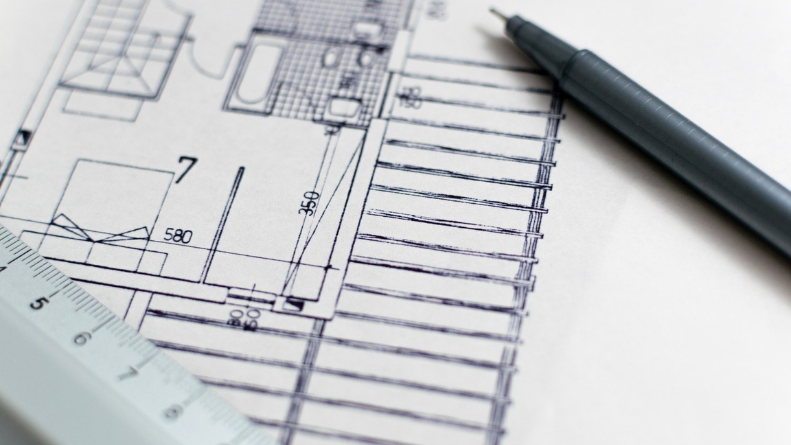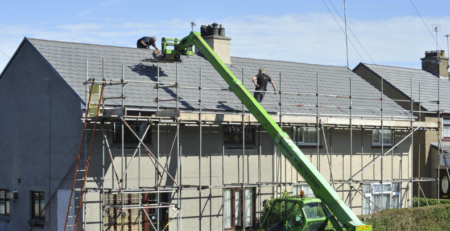Is it Worth Investing in a Basement Conversion?
Although a basement conversion is nothing new, it has become increasingly popular in the last few decades, leading to some very high-profile examples (both positive and negative) in the media.
Converting your basement has many potential benefits, but of course it is not the best choice for every homeowner. Conventional wisdom holds that underground renovations take twice as long as their aboveground counterparts, raising the question of whether or not they are worthwhile.
Today’s article will examine the benefits and drawbacks, as well as the logistics, of converting a basement. There’s a lot to factor in when deciding if a basement conversion is the right choice for you, and hopefully we can help clear up a few things for you here.
Are they a good investment for me?
One of the most common concerns individuals have before deciding to undertake a substantial home renovation project is whether the work will yield a satisfactory return on investment. Renovating a basement is no different. And since we are talking about a substantial cost involved, it is particularly important to weigh up whether it’s a good investment.
Converting a basement may increase the value of your property by 10 to 15 percent. If you want to consider it, you can also rent out the extra room and turn it into a steady source of passive income. Whether or not these benefits warrant embarking on a basement conversion, however, depends largely on the estimated cost of doing so (more on this below).
There are more aspects to be considered as well. Adding living space to a home is always a plus, but basement conversions can have unintended consequences since they are so dependent on the tastes of the individual homeowner. Maybe a humidor (a room specifically designed to keep cigars at the perfect humidity) or wine cellar might be what the present owner is happy with, but how enticing will that be to potential buyers who are fitness enthusiasts and don’t smoke or drink?
Cigar rooms, extensive and fancy wine cellars, and even underground swimming pools may all be redone to fit the needs of future owners, but you will be significantly reducing the number of potential buyers. Let’s face it: investing in immediate labour and disruption isn’t exactly a selling point to potential buyers.
However, increasing the amount of living space in the property increases its desirability, so it’s necessary to think about who will be living there. Other elements, such as time and stress connected with taking on such huge projects, should also be given a lot of consideration.
It’s hard to give a definitive answer to whether a basement conversion is a good investment since assessing whether or not it is or is not can be a bit of a grey area, as it is with many other property-related questions. It’s possible that some will, and some won’t.
What is the price tag for converting a cellar?
At risk of stating the obvious, because no two basement conversions are the same, costs might also vary widely. However, we can still get some rough figures to go by.
A major factor in price is whether you are digging a new area for a basement or remodelling an old one. Renovating an existing cellar can cost anywhere from £800 to £2,000 per square metre, while excavating a new one can easily reach £5k or more per square metre. As you can see, this is not a cheap undertaking.
Why you want to renovate a basement and what you want to use it for will also have a big impact on the price. A home gym will cost a whole lot less than a swimming pool, for example. Then there are the ancillary costs, which may include party wall agreements, planning fees, design costs, and more. Oh, then there’s the 20% VAT to consider.
As you can probably imagine, the total cost of a basement remodel depends on several variables, and the price tag can move upward in no time.
Also, keep in mind that the typical cost of a loft conversion is much cheaper compared to converting a basement.
So compared with basement renovations, loft conversions will normally be a cheaper choice, which is why homeowners commonly expand downwards only if they have already extended upwards.
Does a basement conversion need planning permission?
The answer to this question will change depending on the specifics of the project at hand. An official building permit is not needed if you only want to change the use of an existing cellar and not make any structural changes.

On the other hand, you will likely need approval from the local planning authority if you need to excavate dirt to increase the available headroom. Although there are presently no minimum ceiling height requirements for basement conversions in the building codes, a good rule of thumb is a height of around 2.4 metres.
People who live in historic or conservation district buildings must meet planning and building requirements. Party Wall Agreements are also important to consider, which brings us to our next issue.
Is it necessary to tell your neighbours?
If your planned basement conversion may impact a party wall, you must notify your neighbours in advance. Lessees of neighbouring properties are subject to the same rules. There is no legal requirement to notify your neighbours if no party wall will be disturbed, although doing so would be polite and bode well for good neighbourly relations.
It’s polite to let your neighbours know what you’re planning. Though it may be a little uncomfortable to broach the topic, it’s better to be upfront about your intentions. If the tables were turned and you were the one to get the official notification on your doorstep announcing the start of work, how would you feel? Probably, that wouldn’t make anyone skip for joy.
Stop by your neighbours’ houses at a time that is mutually convenient, and explain what you plan to do and why. Even though they’d prefer you didn’t interrupt their life while work was being done, they’ll still like your honesty and straightforward attitude. A brief and courteous chat with them might make all the difference between them raising an objection or not. You could even invite them over for a completion party to sweeten the deal!
Typical issues with converting a basement
The conversion of a basement is one of the most talked-about options for home remodelling, and with good reason. There are a plethora of horror stories detailing unsuccessful and expensive attempts at extending below ground, but what are the most common problems individuals encounter?
Damp is at the top of the list
If you’re going to spend around £50,000 remodelling your basement, you want to be sure it doesn’t wind up damp and uninviting due to water courses, inadequate ventilation, or any number of other potential problems. This would be a disaster!
Avoid the temptation to go cheap and use substandard materials and contractors. Research the company you are thinking of hiring and make sure they are reputable and source only quality materials for the work. Don’t skimp on this essential step. Doing so may result in a far more expensive repair charge down the road.
Adequate light
Getting enough natural light into your basement is critical if you want to keep it feeling cosy and functional as an extension of your home’s living quarters.While proper basement lighting might be difficult to achieve, it is not impossible.
A well-thought-out design and layout are crucial to achieving good lighting. Installing glass ceiling panels and skylights can have a significant effect in minimising shadows.
Instead of trying to drive natural light downward when there is already so little from above, you may want to rethink the basement’s purpose if you’re having trouble getting adequate light on the ground level.
If getting enough natural light is going to be an issue, then the basement conversion could still be beneficial for the right activity. For example, home gyms are very popular these days and don’t necessarily need that much natural light to be fit for purpose; the same goes for media rooms like home cinemas.
Significant disruption
Significant disruption, the third major factor, is often an issue that throws a spanner in the works. Major renovations, such as a basement conversion, can cause stress for you, your loved ones, and your neighbours if they are not well planned. You could even have to find temporary housing elsewhere while the change is in progress.
If you decide to stay, the chaos and clutter may become overwhelming. Think about your neighbours, too; they’ll have to deal with both the construction phase and the aftermath, with very little to show for it. Make as little impact as possible and treat them with consideration and respect.
ARE YOU READY TO START INVESTING?
Subscribe to our mailing list now for exclusive deals, investment guides and the latest information from the property market.






